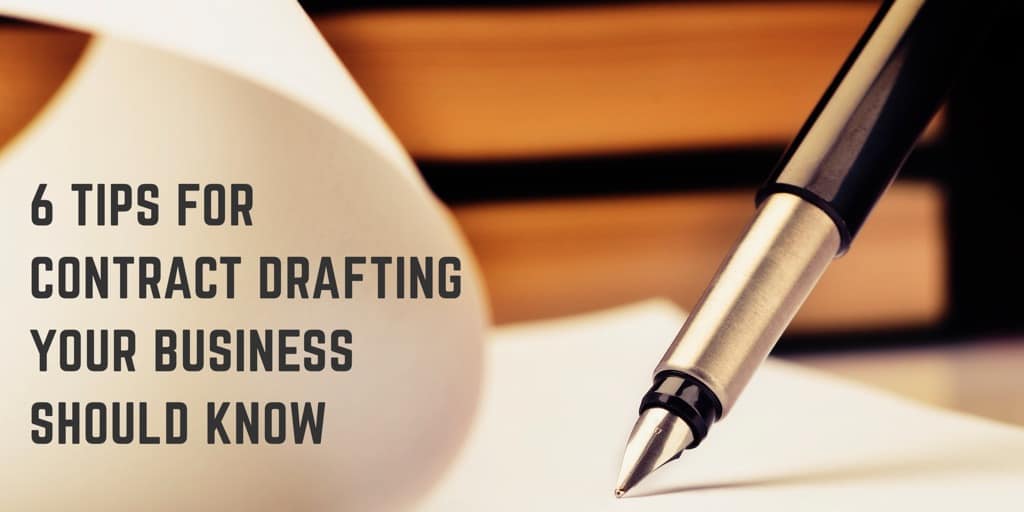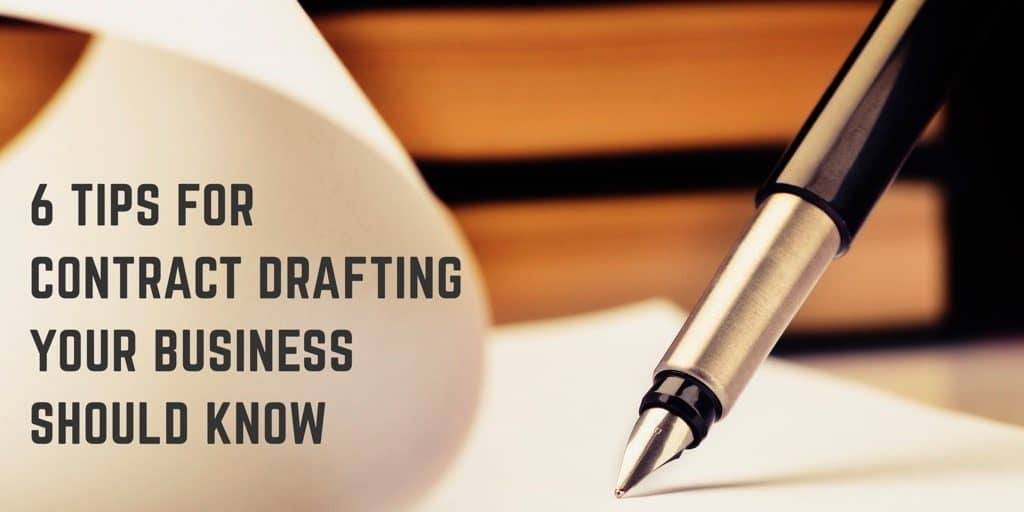Tips for Contract Drafting Your Business Should Know
Contract drafting is an expected task when it comes to running a business. These tips will help your business when it comes to creating contracts.
Ready to sign a new contract and close the deal? Congrats! Before getting started, make sure you know what it takes to write a clear0cut contract!
About 90 percent of all companies are involved in litigation at any given time. The average organization engages in nearly 27 lawsuits. Most times, poorly written contracts are the culprit.
A solid contract can lower the chances of litigation. Moreover, it keeps things clear between you and your clients or partners. Companies must ensure that contracts are followed and cover every aspect of the business in detail.
Every period, comma, and sentence of a contract can make or break your business. Common mistakes, such as misusing conjunctions and being too general, may result in litigation. Thus, it’s crucial that you think twice before sending the contract.
Whether you’re new to contract drafting or you simply need help closing the deal, consider the following tips:
Contract Drafting Checklist
Writing contracts isn’t the most exciting activity. You must know the law, determine your objectives, and focus on the small details. Since these documents are subject to interpretation, it’s essential to be clear.
Depending on your experience, you can write the contract yourself or hire a lawyer. DIY contracts are a cheaper option, but they may cost you a fortune if they’re not drafted properly.
At the very least, this document should include:
- A starting date
- The parties and their signature
- Description of services
- Obligation and conditions
- Responsibility for fixing incomplete or faulty work
- Liability of each party
- Payment terms
- Contract termination
- Procedure for settling disputes
Contracts come in different forms and have different purposes. Thus, you must craft the document accordingly. For instance, if you provide copywriting services, include a clause on intellectual property.
Let’s say you’re getting ready to launch a new line of sports supplements.
In this case, you’ll sign a contract with the factory that manufactures your products. The document should state that your recipes will not be shared with other parties.
When you’re hiring new employees, ask them to sign an exclusivity agreement. This will prevent them from working with your competitors for a given period of time;
The contract may also include other clauses, such as:
- How the work must be performed
- The status of company policies
- The amount of notice required for terminating the contract
- Requirements after termination
- Lien waivers
- A technology privacy policy
- Billing structure
Make sure you mention how the parties will handle potential disputes. Describe the service or project in detail to avoid any misunderstandings.
Check out these contract drafting rules to keep things running smoothly:
1) Be Clear and Concise
Ambiguity can result in a lawsuit. The best way to avoid potential pitfalls is to write the contract in a clear, concise language.
Refrain from using flowery language and old-fashioned terms. Include short, simple clauses. Contract drafting doesn’t have to be complicated.
A well-written contract can have just a few lines. As long as you make your point and everything is clear, it’s no need to write lengthy phrases.
2) Be Consistent
Contract drafting isn’t creative writing. Thus, it’s not necessary to avoid repetitive language. Be consistent in your language.
For instance, if you define one party as Employee or Contractor early in the document, don’t refer them by other names in the following paragraphs.
3) Use a Pre-Made Template
Writing a contract from scratch is not just time-consuming but it may also lead to costly mistakes.
Before getting started, look for contract templates that meet your needs. Don’t try to reinvent the wheel.
Take a sample contract and add your own terms. In general, these documents have some pretty standard clauses. Your only job is to include specific information, such as the parties involved and project details.
4) Provide Definitions
If your contract is technical in nature or includes unusual terms, provide clear definitions. Add a special section at the bottom of the paper to define any words that may be misunderstood.
For example, not everyone knows the meaning of voidable, rescission, or estoppels. Include a brief glossary that explains these terms and what they involve.
5) Define the Scope of Service
The contract should clarify the scope of service. Include detailed information about the service or project. Specify the expectations of the parties.
Consider various circumstances and craft the document accordingly. Reference other documents if necessary. Attach any files that may be required for completing the project.
6) Cut Unnecessary Words
Use plain language and avoid jargon as much as possible. A well-written contract should be easy to understand by lay and legal audiences alike.
Cut obscure words, such as witnesseth, whereas, and legalese. Many times, lawyers use these terms even for simple, non-legal concepts. However, you don’t have to make this mistake.
Write in plain English and use short sentences. Stick to the active voice and keep the subject and verb together. Pay attention to grammar and punctuation.
Be careful when using words like must, shall, will, and may. Each has different implications. The whole point is to avoid ambiguity and complexity.
Wrapping Up
Contract drafting is both art and science. Even the slightest mistake could be costly.
Take your time to write the contract and read it several times before pressing Send. Always have a backup plan in case something goes wrong.
Avoid unnecessary preambles, doublets, triplets, and redundancies. Keep things simple and focus on the end goal. Remember what version of the contract you sent and to whom.
Before writing the document, listen to the other party. Ask about any concerns they may have. Build trust with them and keep an open mind.
What’s your experience with contract drafting? Do you write everything from scratch or use a standard form? Share your tips below!

